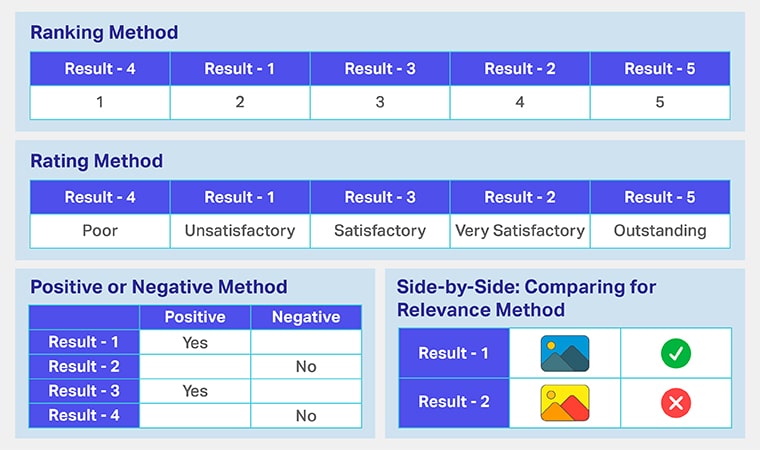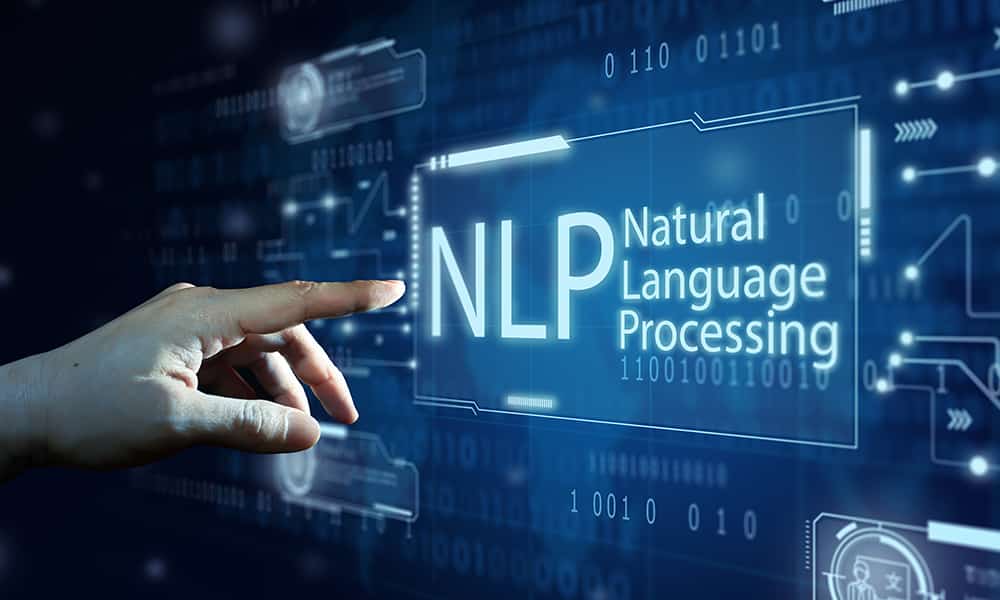Users today are submerged in vast amounts of information, which makes finding the information they need complex. Search relevance measures the accuracy of information an individual requires vis-a-vis their search query and results. It’s not important to provide results but to provide results according to the user’s search intent. Hence, search relevance helps with making it easier and seamless for a user to get the required information. Search relevance is crucial for owners and search engine enablers to help their users to showcase the desired results.
What is Search Relevance?
When you search for something online, you want the results to match what you’re looking for. That’s what search relevance is all about. It’s like having a helpful store employee who understands exactly what you need.
Imagine you’re shopping for a red tennis shoe. With good search relevance, the top results will show you different red tennis shoes. But with bad search relevance, you might see blue sneakers, red sandals, or even totally unrelated items like red hats.
The ability to understand and interpret user intent is a hallmark of a robust search system. By leveraging advanced techniques like natural language processing and machine learning, search engines can better grasp the context and meaning behind a user’s query, ultimately delivering more accurate and satisfying results.
The Evolution of Search Relevance
How can you determine if your search engine is functioning correctly? Put another way, how can you be sure that the results it provides are effective in keeping customers engaged rather than causing them to leave?
A highly effective method to assess the performance of your search engine is by conducting a human relevance evaluation. The process involves selecting a representative set of several thousand or more search queries that your website is likely to receive and recording the top search results for each query. Subsequently, a group of human evaluators is tasked with rating the quality of the search results based on a straightforward criterion of their usefulness. The specific definition of what constitutes a useful result is determined by you and your human evaluators. This approach provides a rapid means of establishing a foundational understanding of your search engine’s quality.
Different Types of Search Relevancy Services
Data labeling companies provide various services to enhance search relevance, with the most common being the evaluation of search results. In this process, human relevance evaluation involves assessing whether a specific search result is pertinent to the given search query.
Kinds of Search Relevancy Measurement Services
Historically, search relevance relied heavily on the frequency of keywords appearing on a webpage. However, modern search relevance places a stronger focus on precision and contextual understanding. The evaluation of search results can be conducted through the following methods:

The evaluator’s assessment of the search results serves as valuable input for the search engine’s algorithm, ultimately leading to more accurate and relevant results being prioritized at the top of the search list.
Enhancing E-commerce Search Relevance through Data Labeling Techniques
Data labeling techniques play a crucial role in improving search relevance in the e-commerce industry. These methods involve annotating and categorizing data to train machine learning algorithms, enabling them to better understand and interpret search queries. Some common data labeling techniques used in e-commerce search relevance include:
- Sentiment Analysis: Annotators label customer reviews and feedback based on the expressed sentiment (positive, negative, or neutral), helping search engines understand product opinions and prioritize results accordingly.
- Image Tagging: Labelers annotate product images with relevant keywords, attributes, and categories, allowing search engines to improve visual search capabilities and provide more accurate results based on image content.
- Named Entity Recognition: Labelers identify and tag specific entities within product titles, descriptions, and customer reviews, such as brand names, product models, or key features, enhancing the search engine’s ability to provide targeted results.
- Intent Classification: Annotators categorize search queries into different intent categories, such as product research, price comparison, or purchase-ready, helping search engines understand the user’s purpose and deliver relevant results.
- Natural Language Processing: Annotators contribute to training NLP models by labeling text data, identifying syntactic and semantic relationships, and resolving ambiguities, enabling search engines to better interpret natural language queries and provide more accurate results.

The Future of Search Relevance
The future of search relevance in e-commerce is set to transform the way consumers discover and purchase products online. As search engines become more sophisticated and intuitive, they will better understand user intent and deliver highly personalized results. Visual search and voice search will make it easier for customers to find products using images and natural language, while AI-powered recommendations will offer intelligent suggestions based on user data and real-time trends. To stay competitive, online retailers will need to optimize their product data and focus on delivering user-centric search experiences that meet the evolving needs of digital consumers.
Elevate Your Search Relevance with Shaip
Every good AI model needs top-notch training data. Shaip has been giving data labeling services for more than 10 years, and we’ve got the skilled people and know-how to set up that important base.
We really care about making sure the data is good quality, and that’s a big part of how we check if searches are working well. We use the latest tools for labeling and follow the best security rules to make sure your business’s search results are spot-on. And if you need us, we’re just a phone call away.



